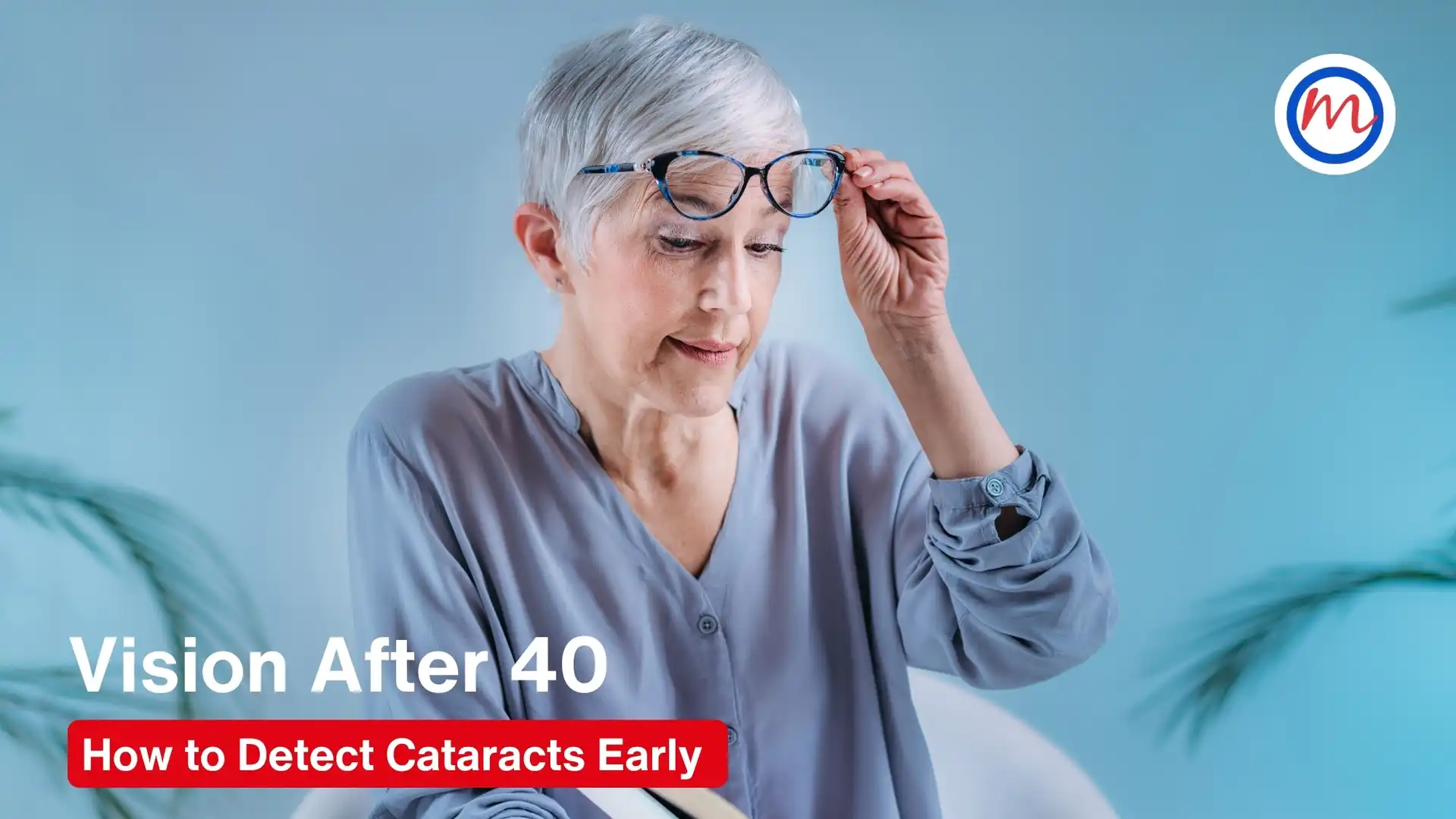Vision After 40: How to Detect Cataracts Early
As we age, changes in our vision are common. But for people above 40—especially those with diabetes—it is vital not to ignore subtle changes that may point to cataracts. Early detection can protect your eyesight and help you plan treatment in time. This article will help you understand the early signs of cataracts, their link with diabetes and when to seek help.
What Are Cataracts?
A cataract is the clouding of the eye’s natural lens. Over time, this cloudiness can worsen, leading to blurry vision, poor night vision or even vision loss if left untreated. Cataracts typically develop slowly and painlessly, which makes early detection crucial.
Why Individuals Over 40 Are at Risk
Cataracts are generally age-related, but certain conditions and habits can increase the risk, especially after the age of 40. These include:
- Diabetes – High blood sugar levels cause changes in the lens of the eye. Learn more about how diabetes increases cataract risk.
- Prolonged exposure to sunlight
- Smoking and alcohol use
- A history of eye injury
- Family history of cataracts
Early Signs of Cataracts After 40
Recognising the early symptoms is key to managing cataracts effectively. Watch out for the following:
- Blurry or Cloudy Vision
Things may appear foggy, like looking through a smudged glass. This often starts mildly and becomes more noticeable with time.
- Increased Sensitivity to Light
Bright lights might feel uncomfortable or even painful. Glare from headlights while driving at night may become problematic.
- Difficulty Seeing at Night
Night vision deteriorates gradually. You may notice halos or rings around lights, making it harder to drive or walk in dim settings.
- Frequent Changes in Glasses Prescription
If you find your vision fluctuating and needing new prescriptions often, it might be due to an early-stage cataract.
- Faded Colours
Colours may not appear as bright or vibrant as before. This happens because the lens becomes yellow or brownish as cataracts progress.
Cataracts and Diabetes: A Special Concern
People with diabetes are at a higher risk of developing cataracts at a younger age. This is because high glucose levels can cause the lens to swell and become cloudy.
If you have diabetes, you must schedule regular eye screenings at least once a year. These check-ups can help in the early detection of not just cataracts, but also diabetic retinopathy and other eye problems. Read more about cataracts and diabetes here.
How Cataracts Are Diagnosed
An eye care specialist can detect cataracts through:
- Visual acuity test (checking how well you can see at different distances)
- Slit-lamp examination (examining the lens under magnification)
- Retinal exam (to check the back of your eye)
Early diagnosis allows you and your doctor to monitor the progression of cataract and decide the right time for surgery, if needed.
What Can You Do to Protect Your Vision?
Even though cataracts are a part of ageing, certain habits can delay their progression:
- Wear sunglasses to block harmful UV rays.
- Quit smoking.
- Control blood sugar levels if you have diabetes.
- Eat a healthy, antioxidant-rich diet (leafy greens, fruits and whole grains).
- Get annual eye check-ups after 40—even if you have no symptoms.
When to See a Doctor
Don’t wait for serious symptoms. Visit your ophthalmologist if:
- You notice frequent changes in vision.
- Your ability to drive at night is affected.
- Your glasses are no longer helping with clarity.
- Your eyes feel more sensitive to light than before.
Conclusion
Cataracts can sneak up on you, especially after 40. But early detection can keep your vision clear and your life on track. Regular eye exams, especially for people with diabetes, are your best defence.
If you or your loved one has diabetes, ensure you (or they) undergo regular screening. Click here to book an eye screening appointment at Dr. Mohan’s Diabetes Specialities Centre.
For Appointment: https://drmohansdiabetes.co.in/enroll/?campname=website



